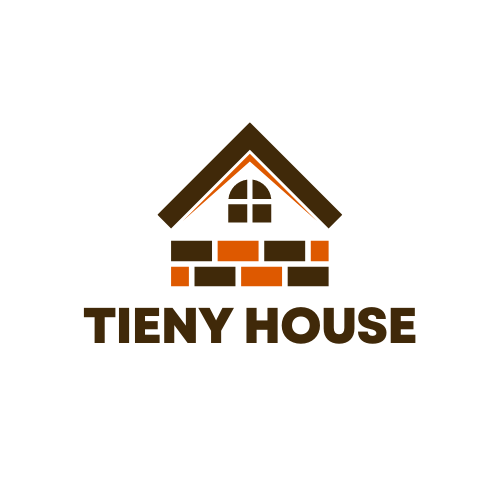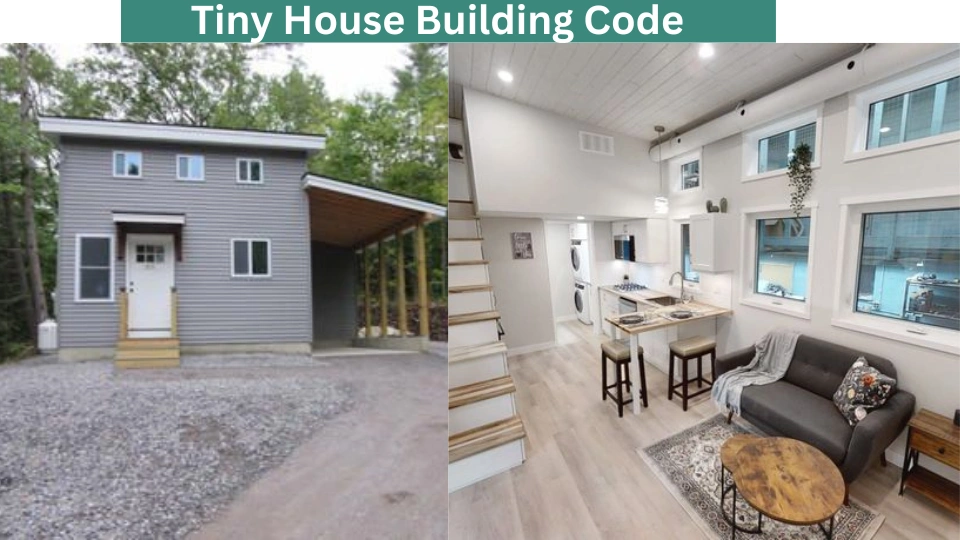Before building your tiny house, make sure you understand the local tiny house building code. Tiny houses are becoming very popular because they can save you money on taxes, utilities, and buying costs.
Many people are choosing Tennessee for their tiny house because it’s affordable, has good tax rules, and beautiful nature views. If you’re thinking about getting a tiny house in Tennessee, it’s important to know about the tiny house building code there before you make your choice.
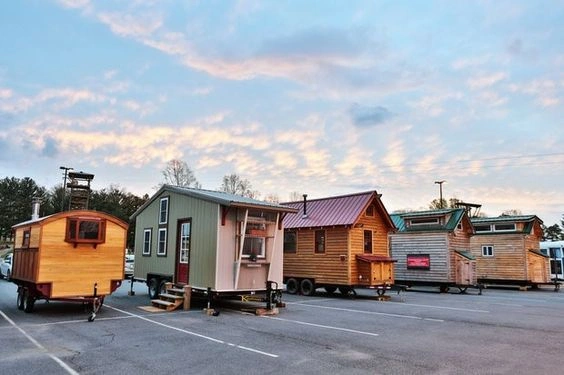
Each city and county in Tennessee might have its own rules for tiny houses. This means they might have different tiny house building codes. Some areas might not even have specific building codes for tiny houses.
It’s important to understand that each place can choose its own rules. To know more about these rules in Tennessee, you can learn about how the TN tiny house building regulations work.
Before starting to build or buy a tiny house, it’s essential to talk to your local city or county office to understand the legal requirements.
Table of Contents
ToggleTiny House Regulations in Tennessee
Tiny House Regulations in Tennessee refer to the specific rules, codes, and guidelines that govern the construction, placement, and habitation of tiny homes within the state of Tennessee.
These regulations may cover aspects such as building codes, zoning laws, licensing requirements, and minimum size standards for tiny houses. Understanding these regulations is essential for anyone looking to build, buy, or live in a tiny home in Tennessee to ensure compliance and avoid potential legal issues.
Tiny Home Building Code Advocates
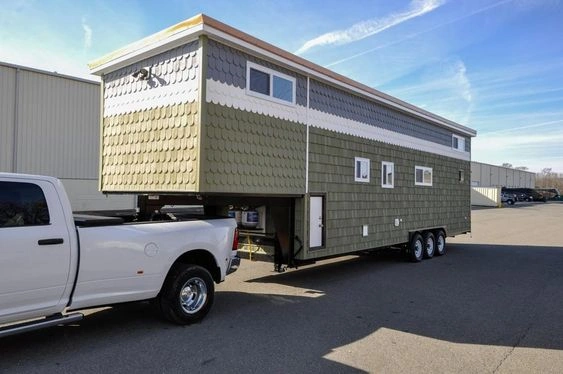
The American Tiny House Association (ATHA) leads the way in promoting tiny houses and supporting tiny home communities.
They work hard to convince local and state governments to create rules and guidelines called the “tiny house building code.” These codes help make it easier for people to own affordable small homes.
Tiny House Building Code Permits in Tennessee
In Tennessee, it’s easier to get permission to build a tiny house. While there isn’t one set of rules for the whole state, some cities and areas have their own tiny house building code.
Here are a few places in Tennessee with special rules for tiny houses.
Knoxville’s Guidelines for Tiny House
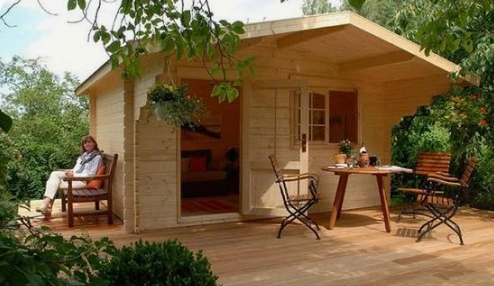
In Knoxville, Tennessee, they use the International Residential Code (IRC) for tiny houses. This means that tiny houses are allowed in Knoxville if they follow the tiny house building code set by the IRC.
Tiny House Regulations in Nashville
Nashville, Tennessee is also open to tiny houses. However, their tiny house building code is a bit unique compared to other places in Tennessee.
In Nashville, they consider tiny houses as separate buildings. So, if you want a tiny house in Nashville, it should be constructed behind a main building on your property.
Tiny House Regulations in Shelby
Shelby County in Tennessee is also welcoming to tiny houses. However, their tiny house building code has some specific requirements. If you want to have a tiny house in Shelby County, the land should be at least 1 acre in size and meet the local building codes.
How to Get a Tiny Home Permit in Tennessee?
Unfortunately, in many places, there aren’t clear statewide rules just for tiny houses. Instead, tiny houses often fall under other building regulations, like the “modular building program“. If you’re thinking about setting up a tiny house, it’s important to know about these building codes.
How Much Does it Cost to Get a Permit for Tiny Homes in Tennessee?
The permit cost for building can change based on your construction budget. If you spend under $5000, the fee is $100. But if you spend more, the fee goes up. Always check the tiny house building code to know the exact costs.
How Long Does It Take To Get a Tiny House Permit in Tennessee?
Getting a tiny house permit in TN is like getting a regular building permit. It usually takes about 10 days to get one. Make sure to understand the tiny house building code before you start.
Can You Permanently Live in a Tiny Home?
Yes, you can live in a tiny house in Tennessee. But, your tiny house must follow the tiny house building code and other rules in the city where you want to build it.
How Many Square Feet Does a House Have to be Considered a Tiny House?
In Tennessee, the size rules for tiny houses change depending on the county or city. They usually use the tiny house building code which is the International Residential Code.
Most tiny homes are less than 400 sq ft, which includes the inside space and any loft. How they classify a tiny house can depend on its use, where it’s located, and local standards.
What is The Minimum Square Footage for a House in Tennessee?
In Tennessee, even though it’s friendly to tiny houses, there aren’t statewide rules just for them. Some places, like Knoxville, use the tiny house building code called the International Residential Code.
According to this code, a tiny house should be at least 120 square feet. Also, the piece of land where you want to put your tiny house should be at least 320 square feet.
Is 800 sq ft a Tiny House?
In many parts of Tennessee, the tiny house building code says a tiny house is usually between 120 and 400 square feet. This means the state focuses on small and efficient living spaces for the tiny house movement.
What is Usually Required in Tiny Home Regulations in Tennessee?
To build a tiny house in Tennessee, you need to follow specific rules and guidelines. Besides the usual requirements, there are extra things you should know about tiny home building requirements:
Plumbing: Every tiny house needs its own bathroom.
Stairs: If there’s a loft, you can use stairs, ladders, or other ways to get to it.
Ceiling Height: The main living area should have a ceiling at least 6 feet 8 inches high. Bathrooms and kitchens can be a bit lower, at 6 feet 4 inches.
Windows: For safety, there must be a way to escape in an emergency. Also, at least one bedroom needs a window and a closet.
Space: There should be a proper bedroom with a window and closet. A room that’s at least 70 square feet for other uses, and kitchens and bathrooms should have ceilings at least 6 feet 4 inches high.
Can I Put a Tiny House on My Property in TN?
Familiarizing with the zoning for tiny homes in Georgia is crucial before starting any construction or placement.
Even if the zoning allows tiny houses, you still need to follow specific rules and get the right tiny home building permits, including the “tiny house building code”. Also, remember that you’ll have to pay property taxes for your tiny house. In most places in Tennessee, the same tax rules for regular houses apply to tiny houses that don’t move.
Counties without Residential Construction Guidelines
In Tennessee, some places choose not to have building codes, while others make their own or use the state’s tiny house building code. So, it’s really important to check with your local government to know the rules where you live.
You might be in an area that doesn’t have any rules at all. Here’s a table that shows which counties and cities don’t have residential building rules, or you can learn more about how building codes work in Tennessee.
Tiny House Communities in Georgia and Rules
Tiny house regulations and rules in Georgia, including those for Tiny House Communities, adhere to specific building codes and standards.
Permanent Structure Rules
When building a tiny home, follow the “tiny house building code” like the IRC or IBC. Place it on an approved foundation and install utilities correctly. Get a permit before moving in. Ensure it has good insulation, ventilation, and plumbing if you’ll live in it full-time.
Tiny Homes Temporary Rules
- Tiny homes should not be bigger than 400 square feet.
- Base should be no wider than 8 feet and not taller than 18 inches.
- Each home needs at least one exit door and two windows.
- Install working carbon monoxide and smoke detectors.
- Follow the “tiny house building code” for electrical wiring and plumbing.
- Ensure good insulation for comfortable temperatures.
- Plumbing and sanitation must meet local health department rules.
- Site should have proper plumbing and sewer connections.
- Follow local zoning regulations for placement.
Frequently Asked Questions
Do i need a Permit to Build a Tiny House on my Property?
If your tiny house is small or in a certain place, you might not need a building permit. But if you plan to live in it, you usually have to follow local building rules.
What is the Minimum Square Footage for a House in Georgia?
Small temporary homes should be no bigger than 400 square feet. They should sit on a base that’s 8 feet wide and 18 inches tall. Each home needs at least one exit door and two windows. Also, make sure to have working carbon monoxide and smoke alarms.
Can i Put a Tiny House on my Property in Washington State?
You need a permit for a tiny house. You might also need permits for electrical, plumbing, and other installations. Make sure you get approval for land use, connect to water and sewer, and have a good foundation.
Do you need a Permit for a Tiny Home in Ontario according to the Tiny House Building Code Ontario?
A tiny house on a foundation can be your main home if there are no size rules, or if a regular tiny house meets the criteria. You’ll also need to follow local building codes and get a building permit.
Tiny House Building Code 2021?
In tiny houses, living areas and hallways should have a ceiling height of at least 6 feet 8 inches. Bathrooms, toilets, and kitchens need a ceiling height of at least 6 feet 4 inches.
